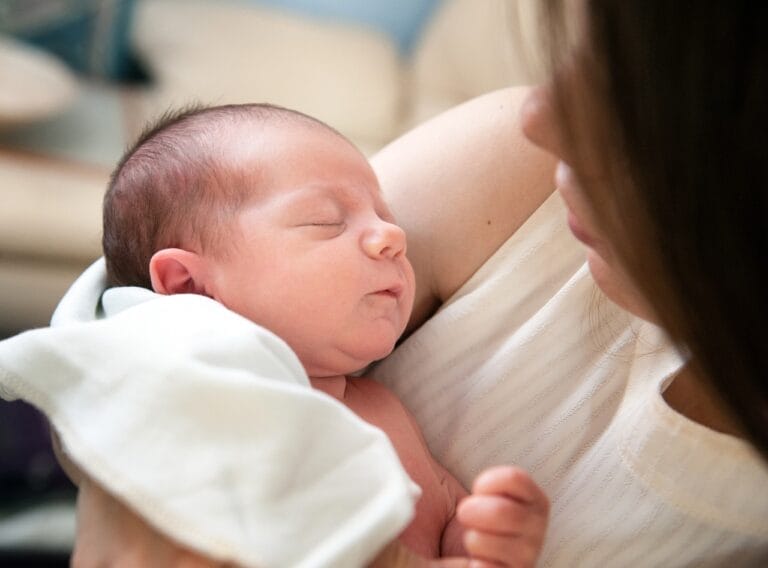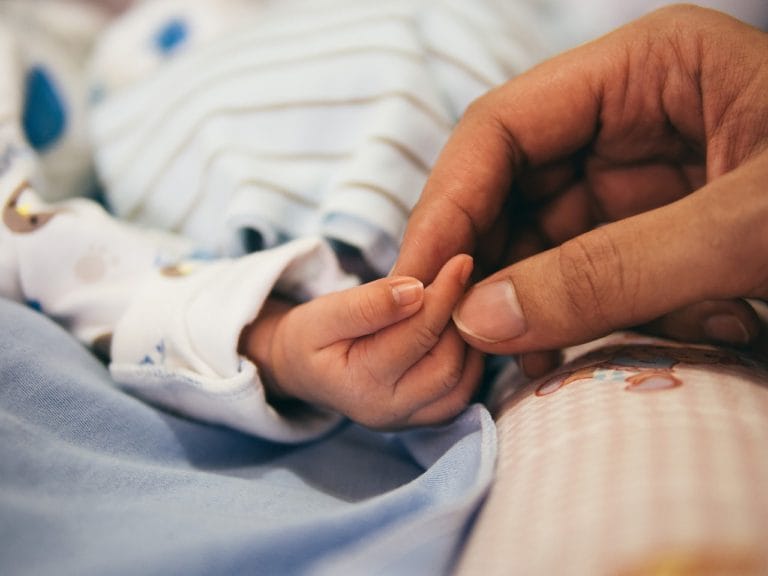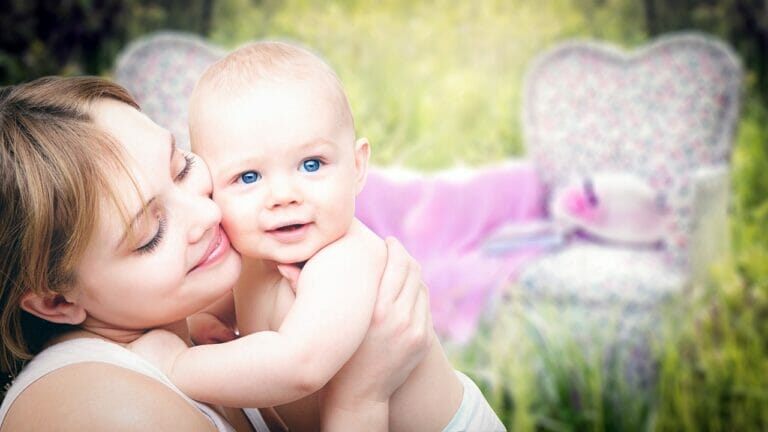The sadness, irritability and loss of motivation associated with postpartum depression can happen for parents that haven’t given birth. From new dads to adoptive parents, postpartum depression can affect non-birthing parents.
Can I have postpartum depression without giving birth?

Experiencing the pangs of labor is not a prerequisite to experiencing postpartum mood changes such as postpartum depression and postpartum anxiety. If you are not feeling like yourself after welcoming a child into your life or after the loss of a pregnancy, you could be experiencing postpartum depression.
What are the symptoms of postpartum depression?
First, let’s define what postpartum depression looks and feels like. If you’ve welcomed a new baby into your life and you have little interest or connection with the new child, this can be a symptom of postpartum depression. Other symptoms include feelings of guilt, feeling like a failure, or general loss of interest in previously pleasurable activities. Many people experiencing irritability and rage, excessive tiredness even when rested, or more frequent crying. Of greatest concerns are thoughts of harming oneself or others. Please note – if you are thinking of harming yourself or your child, please seek help from the nearest emergency room right away!
When depression symptoms arise after a pregnancy loss or after bringing a new child into the family, these symptoms can be considered postpartum depression. Even if the person experiencing the symptoms did not physically give birth to a child!
Hormonal shifts and postpartum depression
It’s true that the extreme hormonal shifts experienced by women who have given birth can trigger depression, anxiety, and even psychosis. For many women who have never been depressed before, these sudden mood changes can be a shock and can resolve relatively quickly with treatment. However, it’s important to note that fathers also experience hormonal shifts with the birth or adoption of a child. In fact, despite never having given birth, it is estimated that one in ten fathers experience postpartum depression. Likewise, adoptive mothers or mothers who used surrogates can experience hormonal shifts as they shift into the motherhood role.
It’s not just about the hormones
The postpartum period is stressful for many reasons and hormones don’t tell the whole story. Having a child is the greatest life transition of adulthood for many people. This is especially true for established professionals who previously experienced extensive autonomy over their lives, resources and time. Despite being able to manage conflicting and intense demands at work, many professionals find the transition to parenthood jarring. The lack of alone time, unpredictable schedule, and need to coordinate with other adults to function can be very dysregulating and trigger depression. Even when a child is deeply desired, the personal and societal expectation to “enjoy every moment” can actually set off the depressive experience.
But I don’t even have a baby…
An early pregnancy loss can be a trigger of postpartum depression. Not only are you experiencing grief, often in a very isolated way, but you have also experienced extreme hormonal shifts in a short span of time. While you may not have given birth to a baby, you are still in a postpartum state. Women who have lost a pregnancy are often dismissed with unhelpful comments or given little information at all about potential mood changes. We recommend a few sessions of therapy following a miscarriage or infant loss to process the experience. Whether you plan to try for another child or not, this particular experience of loss can be life changing. And postpartum depression after miscarriage does happen! One study found that nearly 20% of women who experience an early pregnancy loss also experience symptoms of depression and/or anxiety, lasting one to three years for the majority of women! Many of these women won’t be screened for depression or receive treatment until after they become pregnant and have another child. Therapy for miscarriage and infant loss can help resolve postpartum depression following early pregnancy loss.
There’s help without judgment
Many people worry about seeking help for these mood changes, fearing judgment because they haven’t given birth. As experts in perinatal mental health, we fully understand the reality of depression for non-birthing individuals. Postpartum therapy can bring you relief with the help of a provider who truly understands the postpartum period and adjustment. Combining both experience and scientific knowledge, we can support you in feeling like yourself again! Call us today for a free 15 minute phone consultation. To learn more about Postpartum Therapy and how Skylands Wellness can help, click here.




